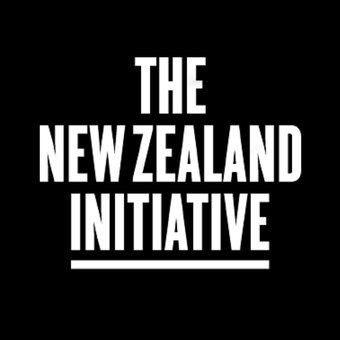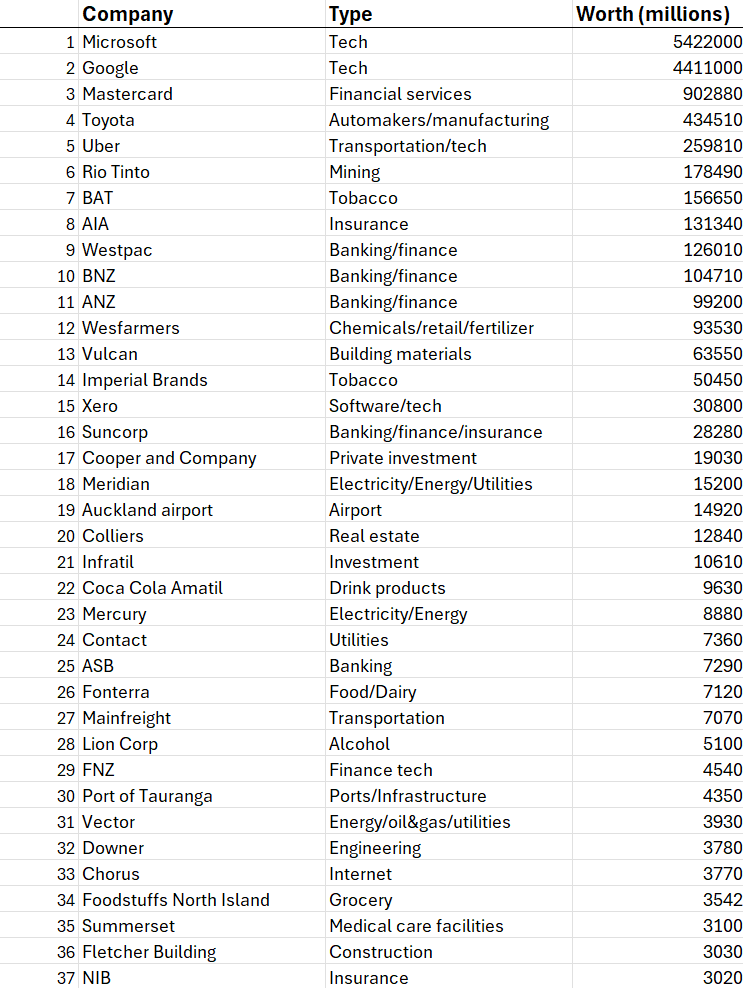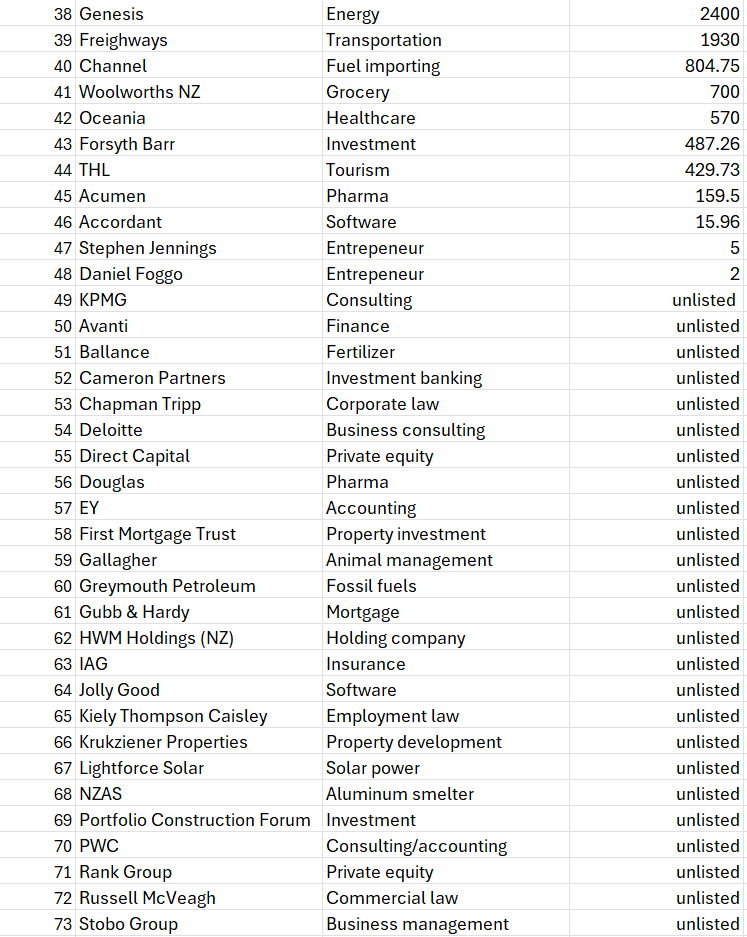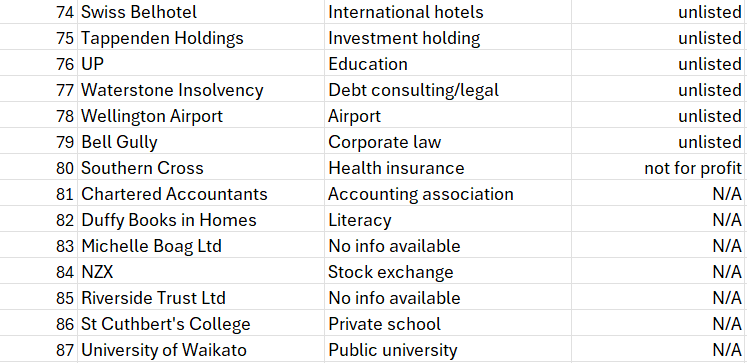NZ Initiative represents at least $12.7 trillion in business interests
NZ Initiative claims to be working towards a "free, prosperous, fair, and cohesive society." Their list of members reveals their deep conflicts of interest.
The NZ Initiative claims to be a non-partisan independent research and policy think tank. The reality is that it is a lobbying group for international and New Zealand corporate interests.
NZI will deny that they are a corporate lobbying group. They have worked hard to cultivate their reputation as independent researchers and policy advisors, with their board, economists, and research fellows routinely providing commentary on the news, writing op-eds, and making various public appearances and statements. Their statements and research papers on various policy issues are given serious consideration and used as evidence by politicians in their policy debates and legislative deliberations.
Although the NZI do not publicly list their funders and donors, their “members” are listed on their public page here.
A quick perusal of this list reveals many of the biggest corporations and businesses in New Zealand and internationally. Digging in a bit further reveals some corporations that the public might find concerning: British American Tobacco, Imperial Brands Tobacco, Rio Tinto (mining), Lion Corp (alcohol), Coca Cola, to name a few. There are also a number of energy/oil companies, property investors, medical insurance and care companies, private equity firms, pharmaceutical companies, and corporate law firms on the list. Companies that would benefit from certain types of legislation that would not necessarily be in the public interest.
These companies represent a staggering amount of capital. Below is an Excel worksheet I put together that estimates the value of these companies. For those companies that are publicly traded, I found the estimate of value on this site, which allows you to look up the market capitalisation of all of its listed companies. This gives an estimate of a company’s worth as indicated by the value of its stock. You calculate this value by multiplying the number of outstanding shares by the current share price.
Some of the companies are private, so I was unable to find out an estimate of their value. These are labeled “unlisted” in the “Worth” column of the attached spreadsheet. There were also a few random individuals listed. Where I could I got a current estimate of these people’s net worth. There are a number of alumni and honorary members as well who have substantial assets but I have not tried to track down the value of these individuals (if anyone else wants to, go for it). There are also some organizations listed that do not have any information about net worth or are not for-profit businesses. These have been listed as N/A.
Here is the spreadsheet if you’d like to download it. I’ve pasted screenshots of the sheet below. The companies are listed in order of value, from highest to lowest.
“The New Zealand Initiative is a business organisation. It is not an organisation to promote business interests. Its only goal is to create a better country for all New Zealanders.”
NZ Initiative claims to be “non-partisan,” “evidence-based,” “credible,” and to be providing its research and policy recommendations with no conflicts of interest. While association with businesses and corporations is not in itself hard evidence of a lobbying mission, given the make-up of its member list and its history of advocating for pro-business legislation and regulation, this claim seems patently false. At the very least, it is a massive conflict of interest. To prove they are not compromised, they should publicly disclose their donors and funders.
The NZI represents over $12 trillion in business interests. It will prioritise the profits of these businesses over any other policy, political agenda, or public good.
The New Zealand public and media should call NZI out for what it is: A member of an international umbrella of right-wing free-market think tanks funded by billionaires and corporations whose mission is to provide intellectual cover for a corporate agenda that prioritises the rights and profits of business over the rights and good of the public.








Thanks one hundred times over for your research and reporting. It is eye opening. Thanks again for your efforts keep up the good mahi
University of Waikato (#87) appears more and more to be the personal fiefdom of its vice-chancellor Neil Quigley. Otherwise what business does an academic institution have in endorsing a very specific and extreme political-economic viewpoint? If Quigley were a socialist, this would be a public outrage.